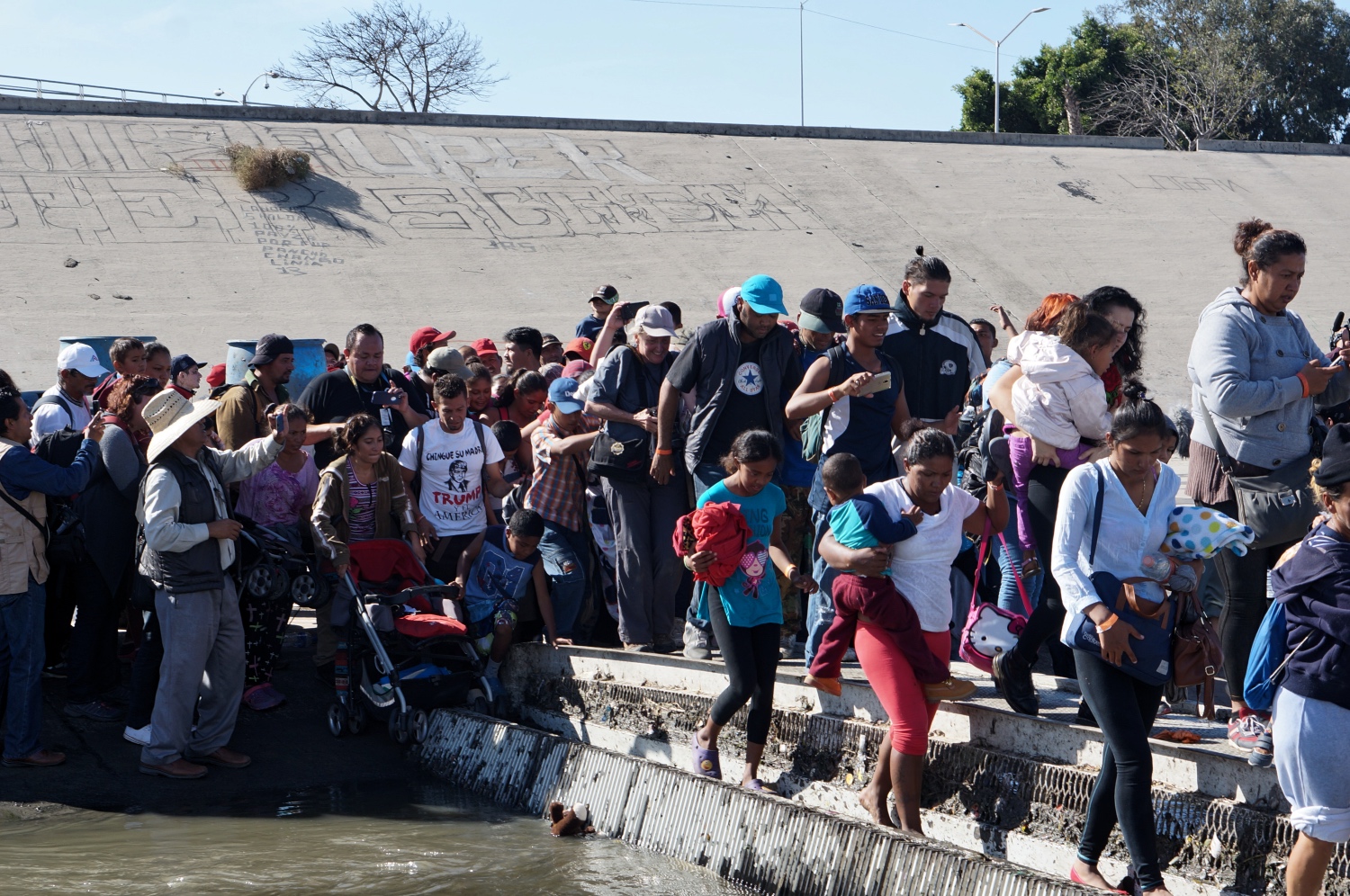This article was first published by the US Guardian on Thursday 29 November.
When I first heard of the “migrant caravan” I thought it was a grossly inadequate way to describe this mass movement of people. The more I have learned about the movement, the more convinced I am of its inappropriateness as a definition. Thus far, I have been using it for social media purposes but I want to break down the terminology.
The term “migrant” is a misnomer. It gives the impression that these people have similar situations to us. It implies they can apply for a visa, get a job, and relocate their families the legal way. Just like an Australian might migrate to the United Kingdom for work. It is misleading to use the term migrants for a group of people who are fleeing criminal violence, authoritarian governments, corrupt security forces, economic failure and extreme poverty. It is misleading to imply that these people have the same opportunities to migrate as people from Australia, the US or other wealthy nations.
While there are legal visas from Central American people to travel, live and work in the US, the likelihood of these people – who are for the most part members of the impoverished working class – being allowed legal entry to the US is low. Their “flight risk” would be considered high and as a result they would most likely not be awarded visas or be allowed into the country. There is also the challenge of their own capability to navigate the immigration system, obtain passports, visas and flights. That’s why for many the decision to join the caravan was impulsive. They took what they saw as an opportunity when it arose, not really understanding the immigration process. Many have been learning about migration law, the asylum process, and repatriation rights on the road north thanks to the work of UNHCR and other immigration organisations.
European countries used the same language when describing the influx of refugees fleeing Syria and Afghanistan as a “migrant crisis”. Such language masks the fact that these people were running away from war zones and violence. Many European countries were directly responsible for the conditions that precipitated the mass movement of people throughout the region. If US and NATO had properly stabilised and rebuilt Afghanistan in the aftermath of the US / NATO invasion, then the next decade and more of conflict in Afghanistan wouldn’t have forced so many “migrants” into the European continent.
Similar geopolitical dynamics are being played out in the US currently. A mass exodus of people from Central American states that have been the victims of US political interventions for decades. Ongoing US intervention in El Salvador, Honduras and Guatemala has destabilised and militarised the region leading to an increase in people migrating to the US. Blaming immigrants for fleeing poverty and violence is a simple response to a complex problem. A better way to stem the future flow of migrants might be to re-examine US foreign policy in Central America.
President Trump is happy to ignore this history, or perhaps he never learned the lessons of US foreign policy. He has been using the “caravan” as a political tool, ramping up his already virulent anti-migrant rhetoric to stoke fear and suspicion towards the members of the caravan and militarise the border. His manipulation of the issue shows just how dangerous language can be.
The reality is that many of these people face dire threats to their life, whether that be directly due to violence or indirectly due to poverty and political instability. Many people in the caravan intend to ask for asylum when they reach the border of the United States. Many have already asked for asylum in Mexico and have been awarded refugee visas.
Many people have told me that they are leaving their countries because there is no work but even then I don’t believe the term migrant is necessarily the appropriate terminology to use. In these cases, it is impossible to separate the poverty of the country from the deteriorating political situation and violence which also exists in the country. Often loss of work or inability to find employment precipitates the decision to leave a country, but often the decision to leave one’s country is multifactorial.
Of course there may also be many people who fit the definition of migrant. My argument is not that none of the members of the “caravan” are migrants. My argument is that calling it a “migrant caravan” creates a blanket evaluation of all these people’s stories and allows judgement and suspicion to creep into the minds of the general public.



